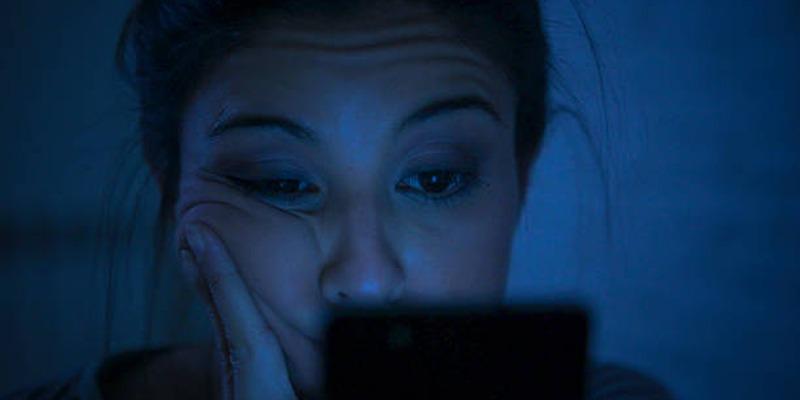The Hidden Effects of Blue Light: Could Your Phone Be Causing Wrinkles
Mar 07, 2024 By Madison Evans
From the moment we wake up to the second before we sleep, our lives are intertwined with digital screens. While smartphones, laptops, and tablets have transformed how we work, socialize, and unwind, the potential downsides of constant screen time are starting to glare back at usquite literally. Blue light, the high-energy visible (HEV) light emitted from these devices, has been increasingly linked to various health concerns far more profound than just interrupting our sleep cycles.
Unmasking the Blue Light Paradox:

We often hear the warnings about blue light's disruptive effects on our circadian rhythms and its potential for eye strain, but there's a new revelation in town: the havoc it might be wreaking on our skin. With more and more of our social and professional lives lived through screens, could the subtle glow of digital technology be aging us prematurely?
The Science of Screen Time Skin Aging
The digital era has given rise to a phenomenon termed 'tech-neck', referring to the development of premature wrinkles and sagging skin on the neck from the downward gaze typical of screen use. This isn't just a coincidence; studies have pointed towards blue light penetrating deeper into the skin than UVA and UVB rays. Consequently, it may be causing more damage than we previously thought.
The Role of Blue Light in Skin Health
Our skin cells operate on natural circadian rhythms, which guide cellular activities like repair and replication. Exposure to artificial blue light after dark confuses these rhythms, leading to compromised skin functions and potentially accelerating the aging process.
Is Your Smartphone to Blame for Hyperpigmentation?
Another common skin woe that could have digital roots is hyperpigmentation. Melasma and dark spots can worsen with cumulative screen exposure, possibly due to the stimulation of pigment-producing cells, the melanocytes, by blue light.
This is particularly concerning for individuals with darker skin tones, who are already at a higher risk of hyperpigmentation.
What Can We Do?
Fortunately, we don't have to give up our screens entirely to maintain healthy skin. Simple measures, like adjusting display settings, using blue light blocking glasses, and incorporating antioxidant-rich skincare products into our routine, can help mitigate the effects of blue light.
The Defense Against Blue Light's Beauty Assault:
Knowing is half the battle, and when it comes to blue light and your skin, there are strategies to protect and maintain your skin's youthfulness in the digital age.
Diminishing Damage with Skincare
The skincare industry is taking note of the blue light effect, with the creation of products containing blue light-blocking ingredients. These range from antioxidants like vitamins C and E, to physical blockers including iron oxides.
The Importance of a Healthy 'Screen Skin' Diet
Incorporating foods rich in antioxidants like lycopene, beta-carotene, and resveratrol, which can help combat the effects of blue light, is an emerging strategy to shield skin from digital damage.
Lifestyle Adjustments to Combat the Blue Screen Blues
Simple habits like increasing screen distance, changing device settings to reduce blue light emission at certain times, and adhering to regular screen breaks can provide your skin with much-needed relief.
The Future of Skincare in the Digital World:
Skincare and technology are two industries on a collision course. The future may see the rise of personalized skincare routines delivered through apps that monitor screen time. In the quest for the perfect visage, apps and skincare could potentially work in tandem, alerting users when it's time for a screen sabbatical or applying tailored skincare products to counter the day's digital insults.
Cosmetic Treatments for 'Tab Wrinkles'
Dermatologists are seeing an uptick in patients seeking treatments to counteract the effects of 'tab wrinkles'. From injectables to laser therapies, a range of options is available to address the lines and creases associated with excessive screen use.
Mindfulness in the Digital Age the Age of Multitasking

Ultimately, while we navigate the ins and outs of blue light's impact on our skin, it's essential to be mindful of our overall screen habits. As technology continues to advance and become even more ingrained in our daily lives, incorporating practices that promote mindfulness and balance will be crucial for maintaining healthy skin and a well-rounded lifestyle.
In a hyper-connected world, mindfulness and single-tasking are becoming luxuries. Finding a balance between digital and analog living can be as beneficial for your skin as it is for your peace of mind. Incorporate digital detoxes into your routine to give your skinand yourselfa break.
Stay Informed and Proactive
As more research is conducted on the effects of blue light on our skin, it's important to stay informed and proactive. Be aware of your screen habits and incorporate healthy practices into your daily routine to protect your skin from potential damage. And remember, while technology can be a wonderful tool, it's also essential to disconnect and take care of yourself in the real world. Your skin (and mind) will thank you for it.
Conclusion:
Blue light may be an unavoidable part of our modern lives, but it doesn't have to be a threat to our skin health. By staying informed, incorporating healthy habits and utilizing skincare products formulated to combat its effects, we can continue embracing technology while also taking care of ourselves. So, don't let the blue light paradox discourage you - with knowledge and action, we can protect ourselves from its potential beauty assault and maintain youthful, radiant skin in the digital age. The future may be bright, but with a little mindfulness, it can also be blue light aware.

Exploring the Health Benefits of Cashews: Nutrition and Wellness

6 Safe Cardio Workouts for Bad Knees

A Far-Reaching Guide to Calorie Deficit

10 Ways Coconut Oil Can Enhance Your Summer Beauty Routine

Understanding the Link Between Tap Water Contaminants and Cancer

Best Weight Training Workouts For Field Hockey

Exploring the Mechanisms of Magnesium Citrate and its Effects on Body


